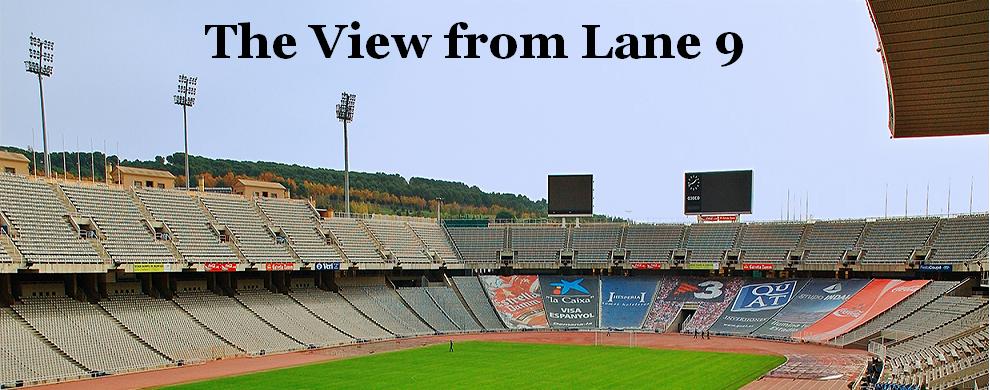 It feels wrong to root against Oscar Pistorius, and to hope that the Court of Arbitration for Sport and the IAAF bans him from competing.
It feels wrong to root against Oscar Pistorius, and to hope that the Court of Arbitration for Sport and the IAAF bans him from competing.Let’s start with the obvious: I have two legs, he does not.
What type of soulless person roots against a double-amputee?
Moving to the more profound: I, like many kids, had dreams of reaching the pinnacle of the sports I played. The Super Bowl, the World Series, the Olympics were all the resplendent stages of childhood fantasy. Maybe after a good race, game or match I even took a leap of faith and believed in it, if only for a fleeting moment.
Eventually, I abandoned those dreams as cold reality hit. I saw some of my peers who were superior in every area, and I slowly let my dream die. It was depressing, but I believed I just wasn’t gifted enough. Even if there was a one in a billion shot of getting there, which there might always be, I rationalized that away because it was not enough. I gave up.
Oscar Pistorius never gave up, and he was the one born without legs.
He has steadfastly chased his dream all the way to the brink of being on the starting line at the Olympics and World Championships. As I'm sure Bob Costas will inform us, it is a true victory of the human spirit.
And now I, a person who lamented about not being gifted enough, want the dreams of a man, who was denied the most basic of all gifts, to never be fulfilled.
So it feels wrong, but I know it is right.
You probably think it is because I believe Oscar Pistorius has an unfair advantage. It might be the paradox of all paradoxes, but the man without legs has something better- the best modern science and engineering can offer. You can read about it here, but the takeaway is that Pistorius’ carbon-fiber prosthetics operate more efficiently than legs.
But it’s really not even that. It’s a whole lot simpler. Why I don’t want Oscar Pistorius to compete is because it’s not just Oscar Pistorius competing. There’s technologically-advanced equipment, in the form of his prosthetics, competing. Sure Pistorius’ mid-section guides his prosthetics, but the prosthetics constitute an artificial addition to his body.
So, that might make me sound even worse. I don’t want him to compete because he doesn’t have legs.
Well, it’s more complex than that. I believe that track and field, swimming, and a few other Olympic sports should be competition between athletes and athletes alone in the purest sense.
For instance, I hated the bathing suits that enhanced performance during the Beijing Olympics’ swimming program. Nothing struck me as more distasteful than the notion that swapping suits might make a difference in the outcome when athletes raced. If I had my way, all of the athletes would just wear identical Speedos.
In track, spikes give me mixed feelings because of the same idea.
A race should be one athlete’s body and mind matched against another’s in an environment that is the same for all. That is the ideal. Bringing in difference-makers like equipment or technology into the competition tarnishes the picture for me. Athletes line up in equal standing, and the most gifted, savvy, and prepared one breaks the tape.
Pistorius, and his dependence on his prosthetic equipment, disturbs this vision. If he was born without legs 50 years ago with the same enviable drive, determination and athleticism, we can be sure that he would not be one of the best quarter milers in the world in the 1980s. Advances in prosthetic technology had not advanced to the point they have today.
On the other side of the token, if he was born tomorrow, he might be capable of running under 40 seconds for 400 in say 2035 when superior prosthetics are developed. The point is: Pistorius’ superiority or inferiority to two-legged athletes and his ability as an athlete is a product of his equipment to an inescapable degree. It's not him, it's something entirely external to him.
Today in 2011, it’s been convenient for the IAAF and IOC that Pistorius’ mesh of factors places him as a fantastic human-interest story and a viable athlete, but not necessarily a medal favorite. But what if he was born with the talent of a freak like Usain Bolt and was capable of running 41 seconds right now given the advantage of prosthetic technology? That's to say it's not just the fate of a specific athlete, namely Pistorius, that is at stake here, but the notion of a fair race between athletes.
When they line up in Daegu or London for the finals of the 400 meters, I want to see the eight absolutely best athletes in the world in the blocks. I don’t want to see the eight best when wearing a certain type of uniform, or sporting a cutting edge type of shoe, or, yes, using a specific type of prosthetics.
As much as I hate to say something so callous, from birth Oscar Pistorius was destined to never be one of those eight.
Today technology is what gets Pistorius into an elite 400 meter race. For me, in a true race, it would be the first thing that keeps him out.






